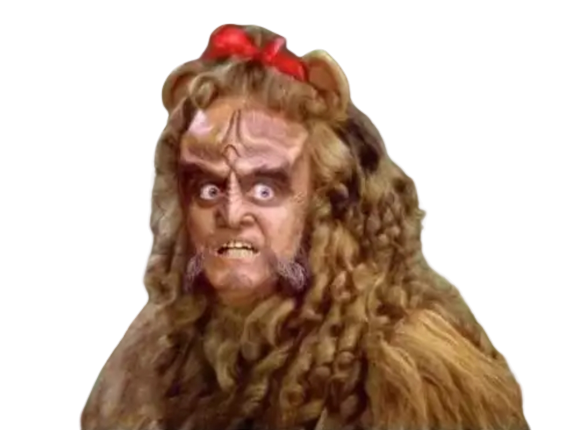Me? I like those obscure Scandinavian ones that are like... a gnome that steals your extra raisins or whatever
Also mothman is pretty cool but he's totally real so he doesn't count 😤
I think the first mention of an orc comes from orlando furioso. Its descrived as an enormous sea creature blind the color of fungus and a pig face.
Wich my dad pointed out sounds a lot like medieval representations of whales. So an orc may just be an orca.
Interestingly i hear that the italian translation of d&d translates ogers as orcs and orcs as orchetos. But i have not confirmed it.
Kelpies and kappas for the shared status as being dickhead spirits drowning passersby for no discernible reason (at least kappas share their booze first).
Every town in Wales with a lake seems to claim that they were the originator of "the lady of the lake" and I find that kinda funny.
When I was little I thought the idea of dryads were cool, just chilling in the woods with your tree. Though egg-me, wished I could be a woman more than a tree nymph.
The fey in general because there's nothing scarier than a monster that hurts and torments you (in ways that you likely won't see coming) merely for the sadistic pleasure of it all.
Kelpies and kappas for the shared status as being dickhead spirits drowning passersby for no discernible reason (at least kappas share their booze first).
Kappa want to take peoples' life force by pulling a ball out of their asshole lol
I like kappas because there is an animal in japan that looks very much like one except its black and a little smaller. I can imagine they were larger in the past.
Anything to do with the djinni or fae. These magical beings with specific rules and manners. Their binding words, and the danger they represent just by being in their presence.
Pro tip. Regular Iron does not work.
The misconseption comes from the fact that the fae have the power of decay. So they rust metals. However cast iron was historically very high carbon steel. So it dosent rust. But its very brittle so we generally dont use it any more. And genarally havent used it since bloomeries appeared 3000 years ago. Black iron is iron that has grown a protective layer of black oxide may also keep them at bay for a while.
Some of the weird Japanese ones are great, like shirime.
I like goblins and kobolds a lot - I wish more CRPGs let you make weird little guys.
Fauns/Satyrs. Sexy hairy wild men of the forest who love to have drunken orgies and terrorise polite society.
Also mothman is pretty cool but he's totally real so he doesn't count
Based and West Virginia-pilled, just like the Battle of Blair Mountain.
I'd have to go with the jackalope or wolpertinger because
 . Just... Don't Google Shope papilloma virus
. Just... Don't Google Shope papilloma virus 
The Rainbow Serpent as a concept was pretty precious to me as a contrarian kid in a rural area full of evangelicals. The whole evil serpent thing seemed so mean to me, a kid who liked the funny lil tube dudes (mostly garter snakes) in my backyard.
But then I find out about this weird old folklore involving the world being given its shape by a giant beautiful snake that was just doing its snake thing. Then I read about what happened to the aborigines yadda yadda yadda I'm posting on a niche leftist board in 2023
True, but the best part for me was that the rainbow snake isn't necessarily good or bad, just a snake doing its thing. It's like it's "naturally supernatural," larger than life but operating within the scope of the natural world as the people who told the story understood it.
I think that Abrahamic mythology is extremely polarised between good and evil. You rarely find absolute good and absolute evil in other mythologies. The Norse gods were revered and worshipped but they would absolutely do stupid or malicious stuff from time to time and fight among themselves, meanwhile the Jotuns were rivals of the gods and could be dangerous to encounter but the gods could intersct with them and they were dangerous in a "ancient force of nature you shouldn't fuck with" way rather than the Abrahamic "wants to torment you forever" kind of way.
Norse mythology is an interesting example too because what we have today is supposedly only a small, dubiously-translated piece of the whole. And from what we do have, I swear it has to be ironic or something. The Norse gods are portrayed at every turn as childish and downright villainous, doing all kinds of petty evil like worming their way out of paying for contract labor to systematic oppression and mistreatment of "ugly" dwarves and jotuns. Considering the patriarchal, deeply unequal society that characterized a lot of the region at the time when they were meeting lots of Christians, it makes me wonder if all the tragedy and irony and hopelessness of the famous Voluspa is the result. Maybe an older, now lost, version of the tale is less doom and gloom?
I can't find it for the life of me, but I can recall once reading this interesting paper that argued the vilification of snakes in Christianity was as a rejection of a lot of superstition in bronze age Europe where snakes were seen as a symbol of wisdom (for example, in some variations of the myth of Asclepius he gained his healing powers from observing snakes caring for each other).
Certainly, after all, early Christianity was pretty concerned with depicting God not as divinity itself as we see today but as just the strongest deity that could give all the others a swirly. There were a lot of religious politics to consider back then. Just look at Islam and its origin involving a town that made its money selling figurines of Gods, Mecca, throwing out that pesky monotheist Muhammad who was gonna ruin their economy. The early storytellers who are responsible for what became Judaism could easily have been aware of the political significance of demonizing certain tropes associated with other (pagan) traditions.
I loved the Thunderbird as a kid. Beeeeeeeg bord makes thunder with its wings, very cool
TW: Jesus told them truth they didn't want to hear
Alright, gather round, my eager friend, for I shall regale you with a tale that will boggle your mind and make you question everything you think you know.
Picture this: the era of the Soviet Union, shrouded in secrecy, intrigue, and, of course, mind-altering substances. It was during this time that I found myself on a peculiar journey, stumbling upon a closely guarded secret that would forever alter my perception of reality. As I embarked on my hippie adventures across Eastern Europe, my path serendipitously intertwined with the clandestine dealings of the Soviet regime.
One hazy summer night, while sipping on some potent homemade moonshine with a group of eccentric locals, I stumbled upon a gathering of individuals with an aura of mystery. They spoke in hushed tones, casting furtive glances around, and their whispers hinted at an inconceivable truth that the world was oblivious to.
Curiosity piqued, I crept closer, eavesdropping on conversations that sent shivers down my spine. It turned out that these colorful characters were part of a secret society within the Soviet Union, known only as "Cosmos." Their mission? To keep the existence of extraterrestrial life under wraps while utilizing a bizarre ploy involving none other than Stalin himself.
As I marveled at the audacity of their plan, they revealed to me the true nature of the man known as Stalin. They claimed that he was nothing more than a fictional creation, a mere figment of the collective imagination of Soviet leadership. To conceal their groundbreaking encounters with beings from beyond the stars, they devised an ingenious scheme to attribute all the atrocities and power struggles to a fictional persona.
You see, my young, impressionable friend, the Soviet Union was in possession of mind-bending extraterrestrial technologies and knowledge. They had established contact with alien civilizations, delved into other dimensions, and witnessed cosmic wonders that would shatter the feeble minds of ordinary folk. But the Soviet leadership, fearing the consequences of divulging these revelations, decided to invent a scapegoat, a convenient mask behind which they could hide their cosmic secrets.
And so, actors were carefully chosen and trained to emulate the man known as Stalin. These impostors masterfully mimicked his appearance, mannerisms, and ideologies, enabling the Soviet Union to maintain the illusion of Stalin's existence while the real powers-that-be exploited the cosmos and unraveled its secrets.
There is no original Stalin. Lenin and Trotsky were in on it. Even today the Kremlin has not revealed what they were really hiding.















